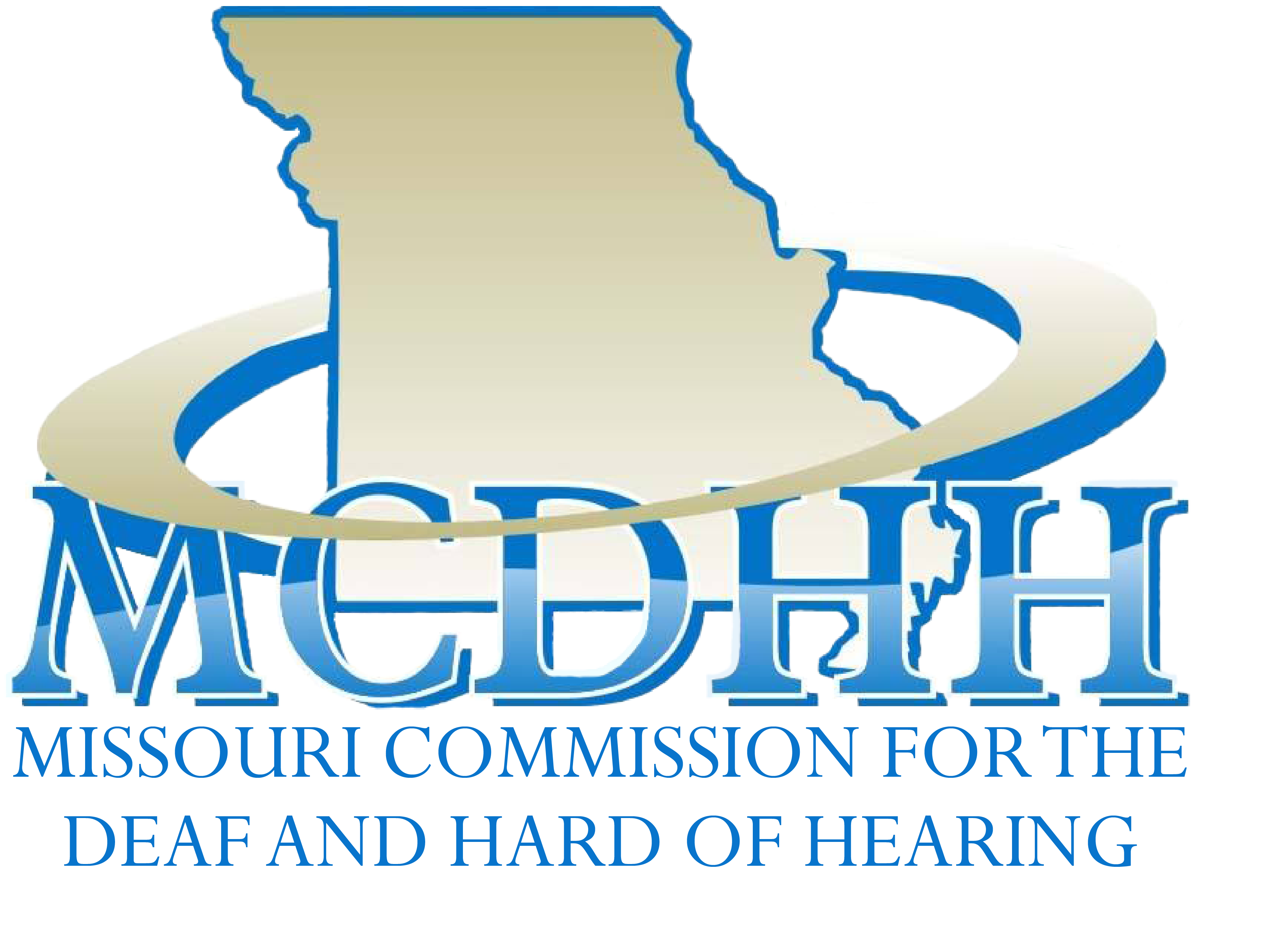BEI TESTING IS BACK!!!!
MCDHH is now in the process of scheduling individuals for BEI testing.
Below, a new tab is in place entitled: BEI TESTING SCHEDULE.
This tab will contain available time slots for both TEP testing and Performance testing for Basic, Advanced, and Master level tests.
Directions for scheduling are included.
Individuals will need to have completed the application for testing and the payment before scheduling an appointment.
THANK YOU
In 2014, MCDHH began leasing the BEI (Board for Evaluation of Interpreters) certification exam from the State of Texas due to its proven validity and reliability. Rules were updated to reflect the changes to the new testing system which included: increasing the educational requirement to become an interpreter and the number of professional development hours required to maintain certification.
THE STATE OF MISSOURI IS CURRENTLY OFFERING THE FOLLOWING EXAMS
To schedule your exam, please contact Shanda Miller: MICS COORDINATOR at 573.355.5989 or Shanda.Miller@mcdhh.mo.gov
**All CDI applicants should contact the State of Texas to complete their CDI exam process.
ELIGIBILITY TO TAKE BEI
To be eligible for certification in the Missouri Interpreters Certification System (MICS), each applicant must:
An applicant who is currently certified at the Novice, Apprentice, RCED, Basic, Advanced or Master levels by MICS and applies for a higher level of certification is not required to meet this educational requirement.
A comprehensive study guide is available to help you prepare for Written and Performance tests.
WRITTEN TEST
The Test of English Proficiency (TEP) is an 80 multiple choice question exam. You will have 75 minutes in order to complete the test. This test is a requirement for all interpreters prior to taking the performance test. The written TEP must be passed before being eligible to take the performance test. The written portion of the certification process was developed to evaluate an applicant’s English skills and it is made up of five parts:
Upon passing the TEP, an applicant is eligible to take the BEI performance test. Each level of certification has its own performance test. An interpreter earns the corresponding level of certification if the minimum requirement to pass is met.
TAKING THE MO-BEI
There are three distinct Interpreter Performance Tests – Basic, Advanced, and Master. The tests are similar in terms of the sections they contain and the tasks they ask the candidates to perform. The tests differ principally in terms of their complexity. In these tests, there are several factors that add to the complexity of the tests:
MO-BEI BASIC TEST
The content of the Basic test focuses primarily on the language found in routine educational and social service settings, as determined by the empirical job analysis of incumbent interpreters. Examples of possible topics include K-12 classroom presentations by students or teachers, special school assemblies, homework assignments, school memos, informational meetings or orientations, and so on.
Components of the Basic Level Test include:
MO-BEI ADVANCED TEST
The content of the Advanced Test focuses primarily on the language found in a variety of high-stakes settings, such as routine medical, social service, K-12 and higher education, routine mental health, and routine quasi-legal, as determined by the empirical job analysis of incumbent interpreters. Examples of possible topics include post-secondary student and professor classroom presentations, professional development seminars, doctor or dentist visits, application for services, employment forms, counseling sessions, and so on.
Components of the Advanced Level Test include:
MO-BEI MASTER TEST
The content of the Master test focuses on the language found in a variety of complex high-stakes settings, such as medical, mental health, quasi-legal, and educational settings as determined by an empirical job analysis of incumbent interpreters. Examples of possible topics include patient information forms, intake forms, contracts or contract negotiations, meetings with medical specialists, special education meetings, and so on.
Components of Master Level Test Include
To access available time slots for TEP or Performance tests, please click on the calendar icon below or hover your mouse over Interpreter Information on the toolbar on the front page and “Test Schedule” will appear for you to click on.
WHAT TO INCLUDE WITH YOUR RENEWAL
WARNING: What is the difference between PPO and Ethics CEUs?
NOVEMBER 2 – CEU DEADLINE
All 2.0 CEUs (with 0.3 in ethics) should be earned by this date. Pay the late fee ($20) to use CEUs earned after this deadline. Late CEUs used for this year’s renewal may not be used toward next year’s renewal.
PLEASE SUBMIT THE FOLLOWING IF ALL CEUS WERE EARNED BY NOVEMBER 2ND
NOVEMBER 3 – NEW CEU CYCLE
Starting on this date, you can start earning CEUs for next year’s certification renewal. CEUs earned before this date are not eligible to count for next year’s 2.0 CEUs.
PLEASE SUBMIT THE FOLLOWING:
DECEMBER 2 – RENEWAL POSTMARK DEADLINE
Make sure all of your renewal paperwork is accurate, complete, and postmarked by this date. In addition to incurring a late fee ($20), submitting a renewal after this deadline risks not receiving your new certification card by December 15.
DECEMBER 15 – INVALIDATION DATE & BEGINNING OF REINSTATEMENT
If you do not have your new certification card by this date, you are not credentialed to interpret in the State of Missouri until you receive it. Your certification from the previous year is now invalid. Renewal paperwork postmarked after this date must include a reinstatement form and the accompanying reinstatement fee ($60).
PLEASE SUBMIT THE FOLLOWING:
Conversions of certifications from outside the State of Missouri, may or may not be accepted by Missouri Commission for the Deaf and Hard of Hearing (MCDHH) and Board of Certified Interpreters (BCI). Each application is reviewed on a case by case basis. Some conversions can bypass MCDHH altogether. Please review the Conversion Application Packet for information regarding your certification, possibly equivalency level, and steps of the conversion process.
State Committee of Interpreters: 573-526-7787 ****THIS LINK WILL REDIRECT YOU TO AN OUTSIDE SITE. IF YOU NEED A LICENSE NUMBER OR PIN, PLEASE CONTACT THE OFFICE FOUND USING THE GIVEN LINK****
MISSOURI INTERPRETERS CERTIFICATION SYSTEM (MICS)
The MCDHH’s Missouri Interpreters Certification System (MICS) is a quality assurance screening system used to certify sign language interpreters within the State of Missouri. Certification is obtained through a written test and a performance test. Each performance test is evaluated by a team of trained evaluators on a number of factors and the candidate receives one of three certification levels (Basic, Advanced, Master) based on their skill.
The MICS is governed by the Board for Certification of Interpreters (see tab). MICS certifications may be used by the State Committee of Interpreters (SCI) to satisfy requirements for licensing.
CERTIFICATION TESTING CURRENTLY BEING OFFERED IN MISSOURI
BEI (Board for Evaluations of Interpreters)
The BEI exam, conceived in Texas, is leased annually. It replaced Missouri’s previous certification system, as it was deemed to be a more valid and reliable exam to assess an interpreter’s abilities in the profession of interpreting.
Levels of BEI currently being offered in Missouri:
To schedule an exam, please see BEI testing tab for more information.
OTHER CERTIFICATIONS IN MISSOURI
MICS (Missouri Interpreters Certification System): This was the former evaluation system for determining interpreter certification in the State of Missouri. This system was replaced in 2014 with the BEI exam, which is leased from Texas. Interpreters at the level of “Novice, and Apprentice” are no longer recognized as “levels of certification” in the state. All interpreters that held Basic, Advanced, and Master Certification were “grandfathered into the BEI certification system” in order to not “re-test.”
IT SHOULD BE NOTED: “The conversion of prior MICS certifications pursuant to 5 CSR 100-200.035 (10) (A) to the new certification levels does not certify that the holder passed the written test of English proficiency or the corresponding level’s performance test. It does not entitle the holder to reciprocity with another BEI certifying entity” (SCI Green book pg. 30).
LEVELS OF MICS
INTERN/PRACTICUM CERTIFICATE
A student, registered in an Interpreter Training Program (ITP) approved by the BCI, and required to interpret in order to fulfill the curriculum requirements for an internship or practicum course, may apply for and be granted an Intern/Practicum Certification. This certificate is limited to the length of time you are enrolled in an ITP program.
PROVISIONAL CERTIFICATE IN EDUCATION (PCED)
A Provisional Certificate in Education (PCED) is available for individuals who wish to interpret only in preschool, elementary, and/or secondary school settings. This certificate is limited to one year and is not renewable.
RESTRICTED CERTIFICATIONS
Interpreters who only want to provide interpreting services in elementary and/or secondary school settings may be granted a Restricted Certification in Education (RCED). An RCED is annually renewable.
The two types of Restricted Certifications:
**Both of these certifications can be obtained only by conversion from the Educational Interpreters Performance Assessment (EIPA) system, with a score of 4.0 or higher. The EIPA Elementary converts to MICS RCED (K-6), and the EIPA Secondary converts to the MICS RCED (7-12).
PROVISIONAL CERTIFICATION (AKA LEARNER’S PERMIT)
To obtain the Provisional Certification (aka Learner’s Permit), an applicant must pass the written Test of English Proficiency, and receive a non-passing score on the Basic Performance Test.


